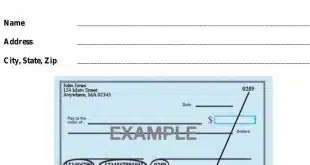A new service from specialty payment-services provider Highway Toll Administration LLC seeks to boost electronic toll-booth payments by making toll transponders available to customers who reserve rental cars through the big online travel booking site Travelocity.com. Great Neck, N.Y.-based HTA introduced the mail-order service, called TravelPass, Jan. 29. “The TravelPass service offering is an outgrowth of HTA's vision, which is to have all rental cars equipped with a toll device,” HTA president and chief executive David Centner tells Digital Transactions News by e-mail. Founded in 2002, HTA estimates it controls 75% of toll transactions generated in the highly niche market of rental cars outfitted with electronic toll-road transponders, or radio frequency identification tags. All rental agencies on Travelocity are by default participants in the TravelPass program, including Alamo, Avis, Budget, Dollar, Enterprise, Hertz, National, Payless Car Rental, and Thrifty. The privately held company won't reveal transaction volume. The new program is modeled on the Netflix DVD-rental business in which consumers order DVDs online and have them mailed to their homes. Business or leisure travelers who book a rental car through Travelocity can click on the “add a toll device” option to order a TravelPass tag, or transponder, to be placed in the car. HTA then sends the device to the customer via first-class mail, but travelers who want it fast can have it sent overnight by FedEx at an extra charge. A customer's credit or debit card is charged $1.99 for each day's usage of the tag, plus, of course, the tolls. HTA supplies the customer with a postage-paid envelope to return the tag. Centner won't identify HTA's merchant processor or the pricing it pays for card processing. HTA says TravelPass's advantage for consumers is not having to fumble for change at toll booths. Tollway authorities, meanwhile, could see some lower operating costs because automated collection systems are more efficient than cash-based ones, and they also could capture more revenues as toll booths read transponders on rental cars whose drivers formerly might have passed through without paying. HTA currently is offering the program mostly in the Northeast and Midwest, where the nation's toll roads are most concentrated?Delaware, Pennsylvania, Illinois, Rhode Island, Indiana, Maine, Vermont, Maryland, Virginia, Massachusetts, New Jersey, West Virginia, and New York, in addition to Texas and Washington D.C. “If response to the program is good, rollout to other areas could happen very quickly,” Centner says. A spokesperson for Travelocity, a subsidiary of Southlake, Texas-based Sabre Holdings Corp., did not respond to a Digital Transactions News inquiry. The new HTA service, however, clearly is one way an online service can enhance its offerings at a time when travel bookings are slowing because of the recession, making business tougher for Travelocity and its big rival such as Expedia, Orbitz, Priceline, and Hotwire. Then there are upstarts nipping at their heels such as Norwalk, Conn.-based Kayak.com, which was founded by veterans of Orbitz, Travelocity, and Expedia. Centner says HTA approached Travelocity with the transponder idea because “we know that Travelocity, a leader in the global travel portal industry, would be receptive to technology innovations that add value for their customers.” He will not say whether his company's deal with Travelocity is exclusive. “We currently aren't in negotiations with any competitive sites,” he says. “We're most interested right now in finding out how useful customers will find the TravelPass program.” In other travel-related payments news, Alexandria, Va.-based RideCharge Inc. this week announced that its Taxi Magic software application for smart phones is now available to book taxis from two cab companies in Chicago. The application, which can be downloaded onto Apple Inc.'s iPhone and the BlackBerry from Research in Motion Ltd., also tracks cabs as they're en route to the customer's location by linking to the taxi companies' dispatching systems. At the end of the ride, customers can pay the metered fare and add a tip through their smart phones. The service represents yet another advance in the payments utility of the increasingly popular smart phone (Digital Transactions News, Dec. 24, 2008).
Check Also
Consumer Information Gains Ground in Criminal Quests, Javelin Report Finds
Ever-clever criminals are expanding their scope in information as well as funds. That’s according to …




